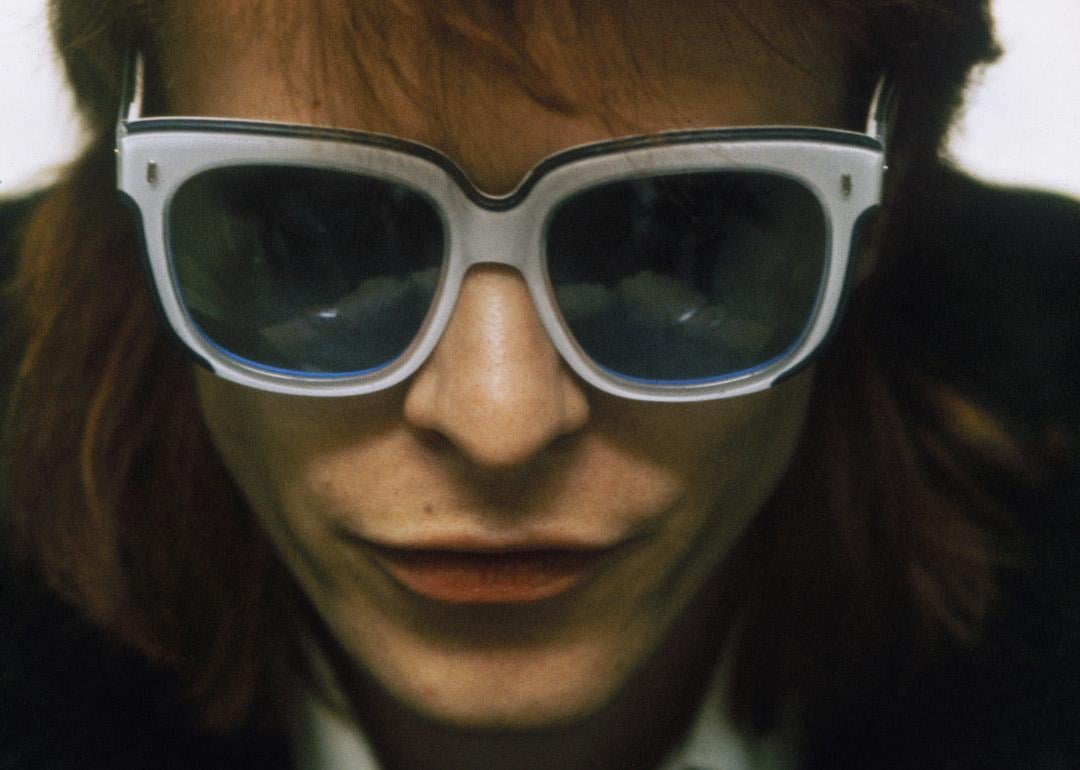David Bowie: The life story you may not know
Published 10:30 pm Tuesday, January 3, 2023
Anwar Hussein/Hulton Archive // Getty Images
David Bowie: The life story you may not know
David Bowie was one of the most intriguing musicians of our time, reinventing himself continually and influencing countless others along the way.
Bowie’s theatrical flare, creativity, sexual ambiguity, and incredible music kept the public endlessly interested. Stacker compiled a list of 25 things about David Bowie’s life you may not know, drawing from news accounts, biographies, magazine interviews, and movie and music databases.
He made more than two dozen albums, including “Blackstar,” released just two days before his death. He played more than a dozen instruments, including a right-handed guitar, even though he was left-handed. Bowie’s concept album, “The Rise and Fall of Ziggy Stardust and the Spiders from Mars,” introduced the world to his glam-rock persona in 1972. Four years later, he starred in the film “The Man Who Fell to Earth.” By the end of the 1970s, he kicked his drug habit and appeared in “The Elephant Man” on Broadway.
Two years after suffering a heart attack in 2004, Bowie performed three songs on stage with Alicia Keys in New York. It was his last performance. In the year following his death, Bowie and “Blackstar” won four Grammy awards. The BBC reported in 2019 that David Bowie had won the broadcaster’s viewer poll for the greatest entertainer of the 20th century, beating out Charlie Chaplin, Billie Holiday, and Marilyn Monroe.
“I like crazy art and, most of the time, out-there music,” Bowie told Uncut magazine in 1999. “Rather than having a hit song these days, I like the idea that I’m in there changing the plan of what society and culture look like, sound like. I did change things, I knew I would. It feels great, and very rewarding.”
You may also like: 50 celebrities with a history of protest
![]()
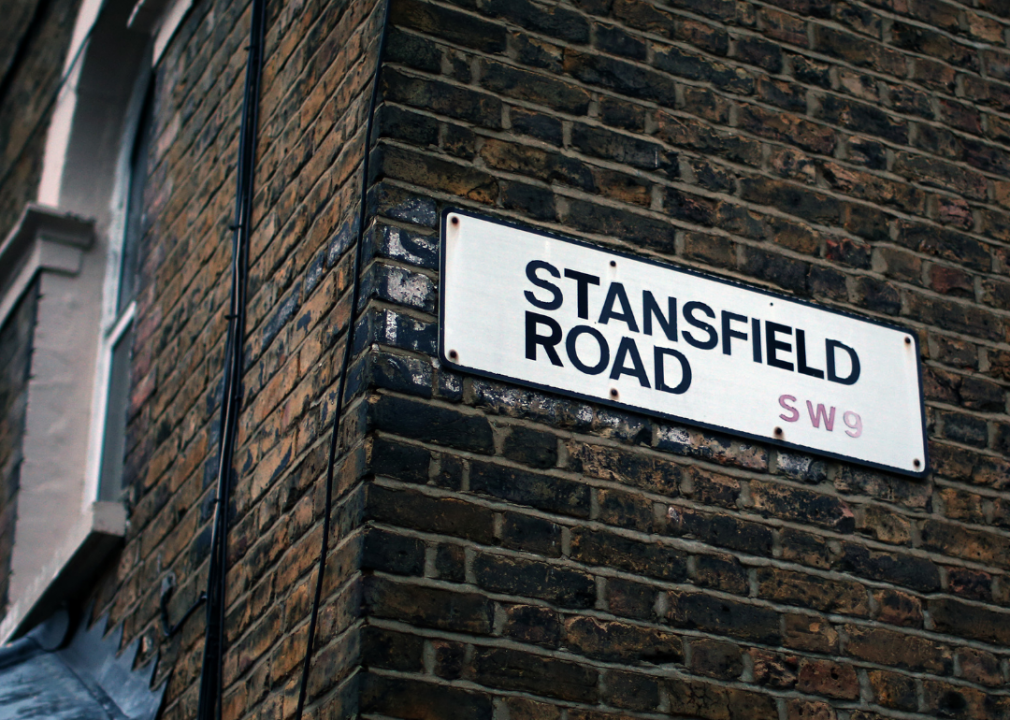
Carl Court //Getty Images
1947: Born in Brixton
David Bowie was born on Jan. 8, 1947, as David Robert Hayward-Jones in Brixton, London. His father, Haywood Stenton Jones, belonged to a well-off family with members who were partners in the Public Benefit Boot Company.
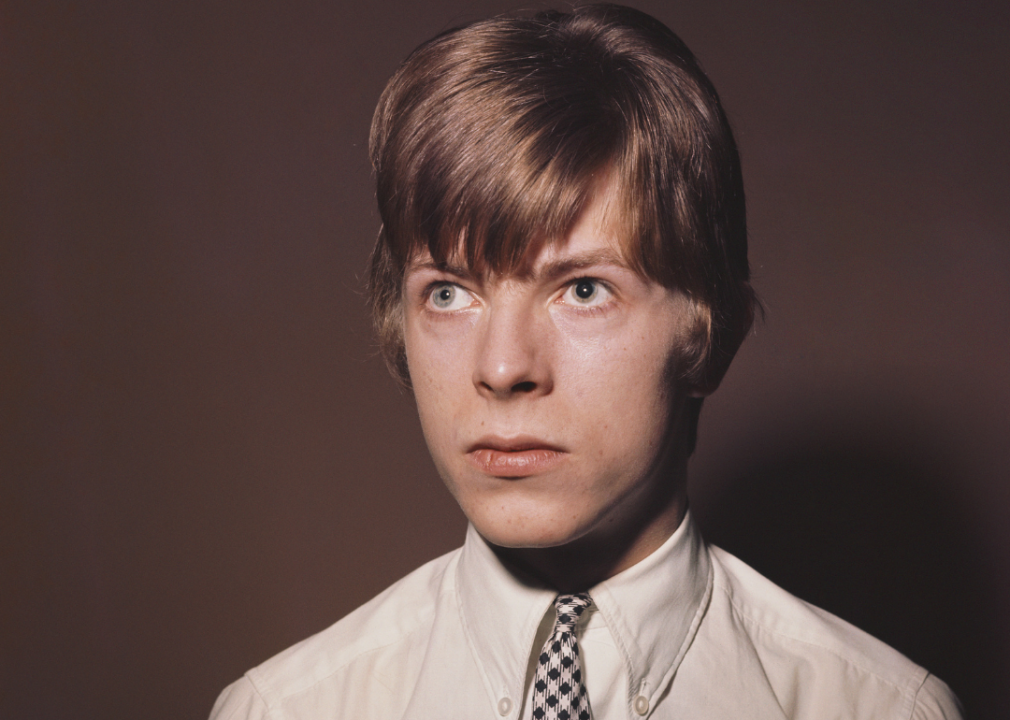
CA/Redferns // Getty Images
1960-1962: Learning to play sax, getting punched
Bowie became a jazz fan and at age 13 started to play the saxophone. He attended Bromley Technical High School with Peter Frampton, whose father was the schoolmaster. When he was 15, he was punched in the eye by a friend. The injury left one of his pupils permanently dilated, making it appear that his blue eyes were two different colors.
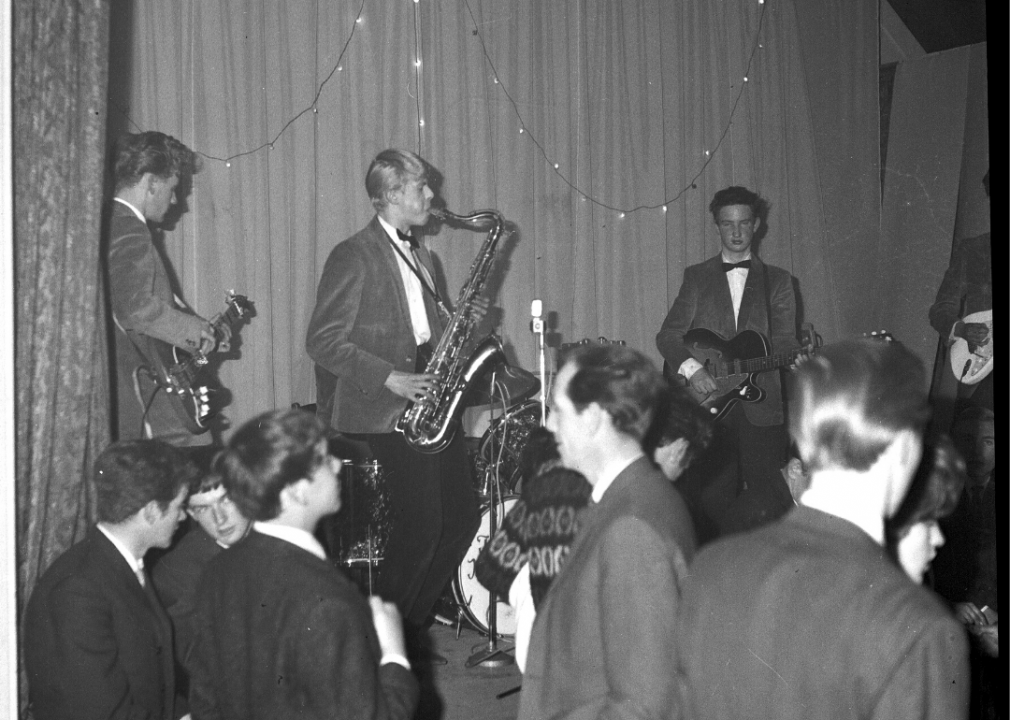
Mark and Colleen Hayward // Getty Images
1962: Debut of the Kon-Rads
Bowie formed his first band, the Kon-Rads, in 1962. He was a member of the Hookers Brothers, then the King Bees, and later joined the Lower Third.
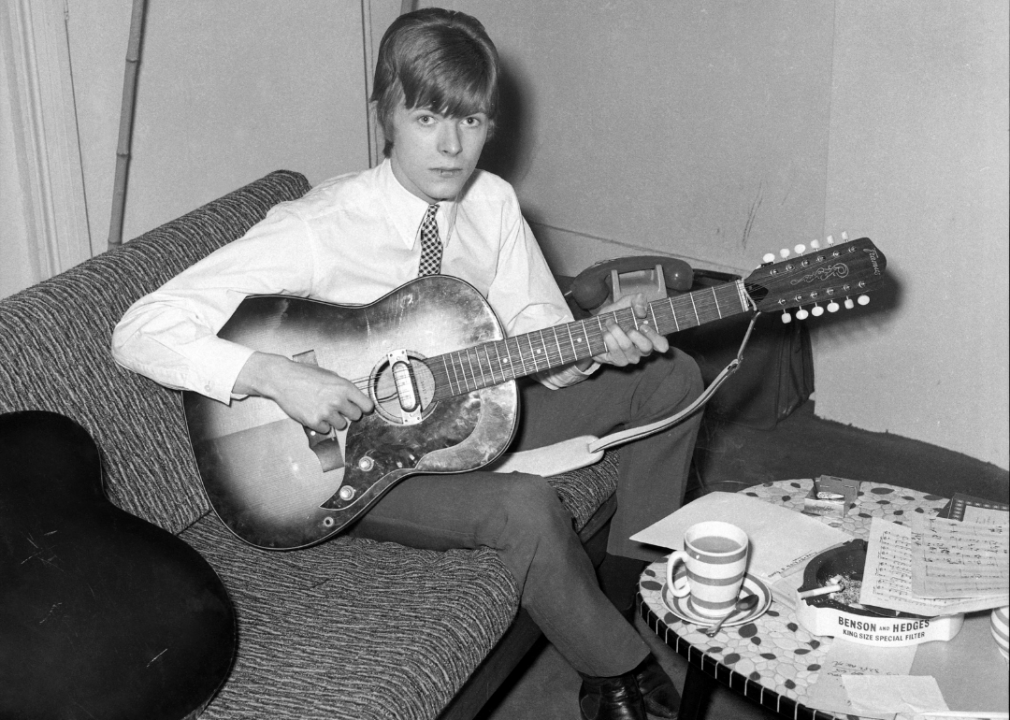
Cyrus Andrews/Michael Ochs Archives/Getty Images
1966: Davy Jones becomes David Bowie
The musician adopted the moniker David Bowie in 1966. He had tried going by Davy Jones, but it was the same name as the lead singer of the Monkees. He chose his new name after American pioneer Jim Bowie, who is credited for the Bowie knife. A year later, he released his first self-titled album.
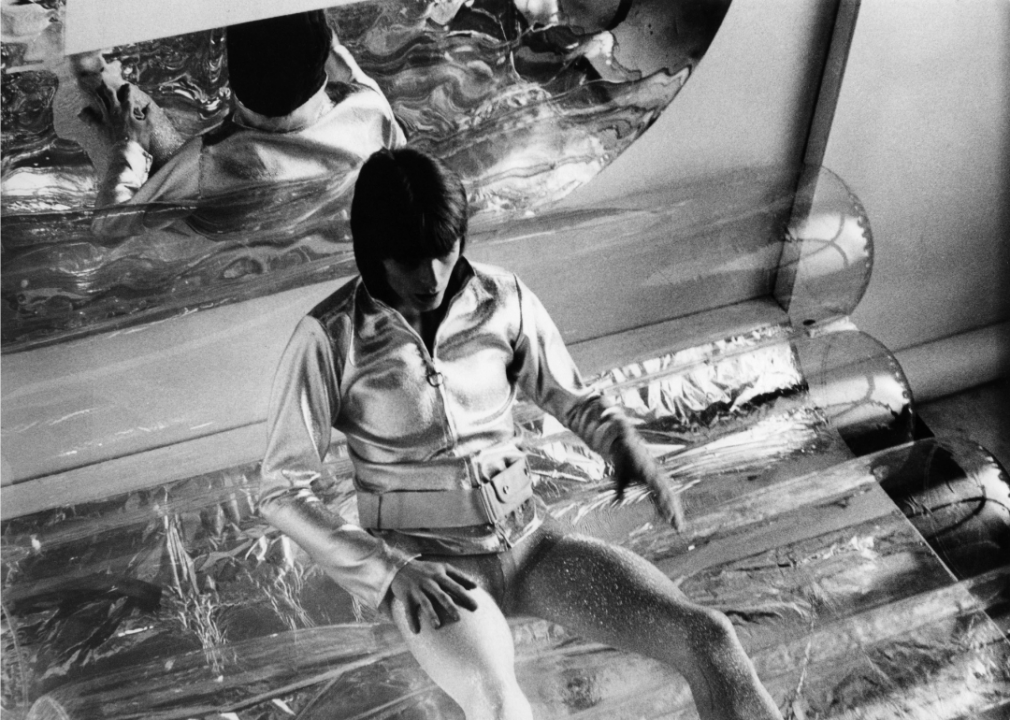
RB/Redferns // Getty Images
1969: Release of ‘Space Oddity’
Bowie’s single “Space Oddity” was released just days before the U.S. Apollo 11 launch to the moon. It was his breakthrough hit, reaching the top five in Britain.
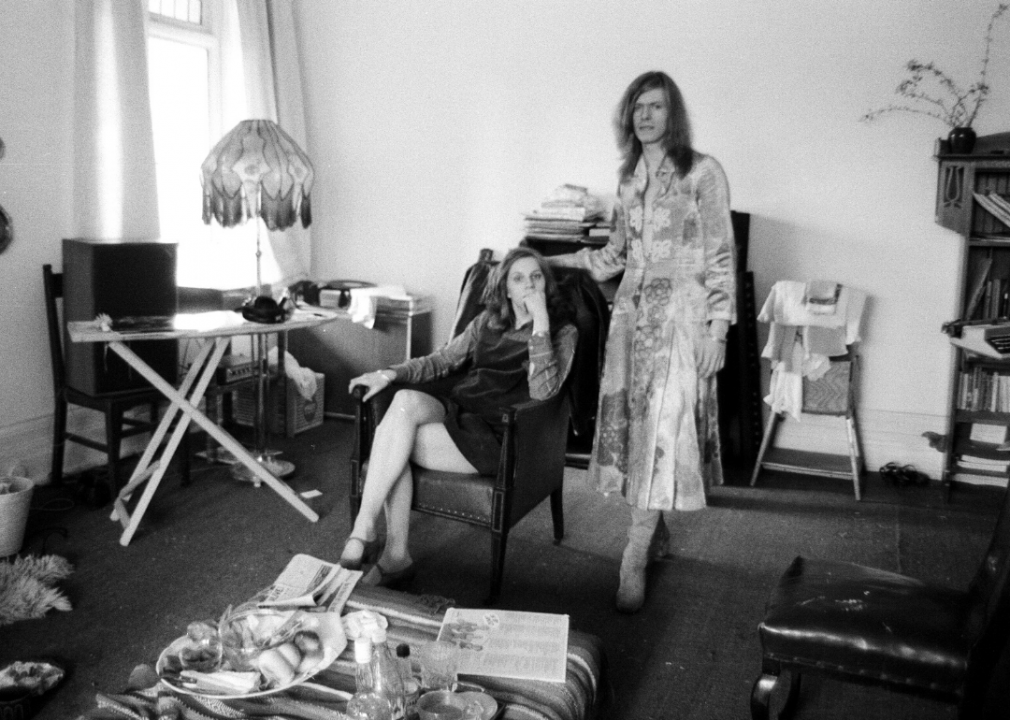
Peter Stone/Mirrorpix/Getty Images
1970: Marrying Angela Barnett
Bowie married model and actress Angela Barnett in March 1970. Their marriage lasted 10 years. As part of their divorce agreement, Barnett could not reveal details of their marriage for several years. In 1992 she released a memoir called “Backstage Passes: Life on the Wild Side with David Bowie.”
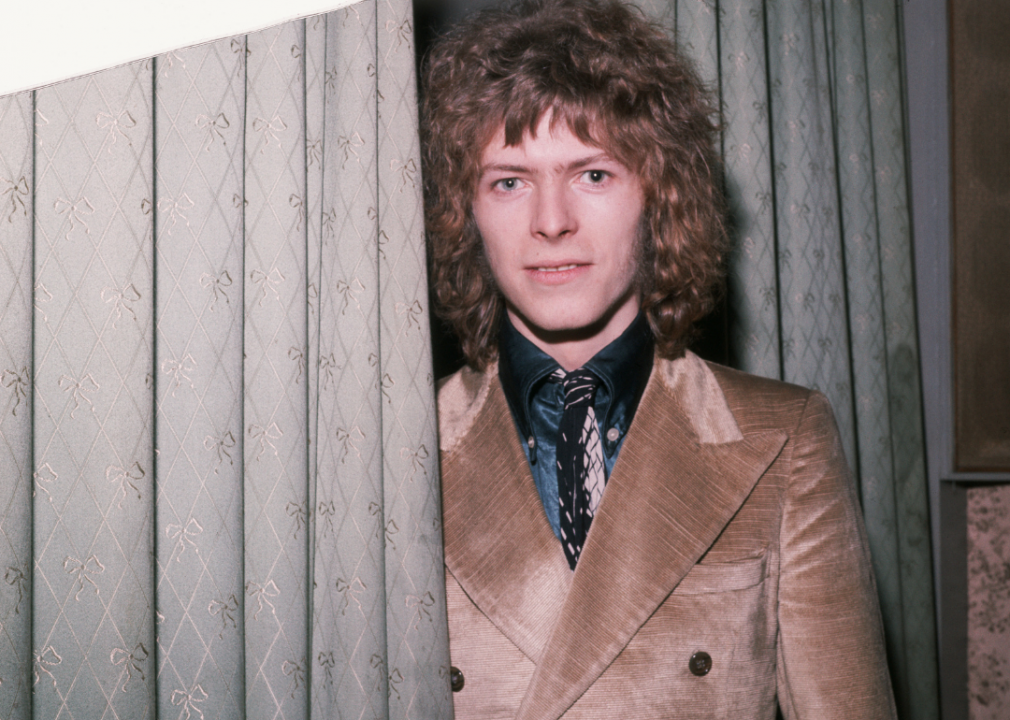
Hulton-Deutsch Collection/CORBIS/Corbis via Getty Images
1970: A trip to America
Bowie released “The Man Who Sold the World” in late 1970. He made his first trip to America to promote it the following spring.
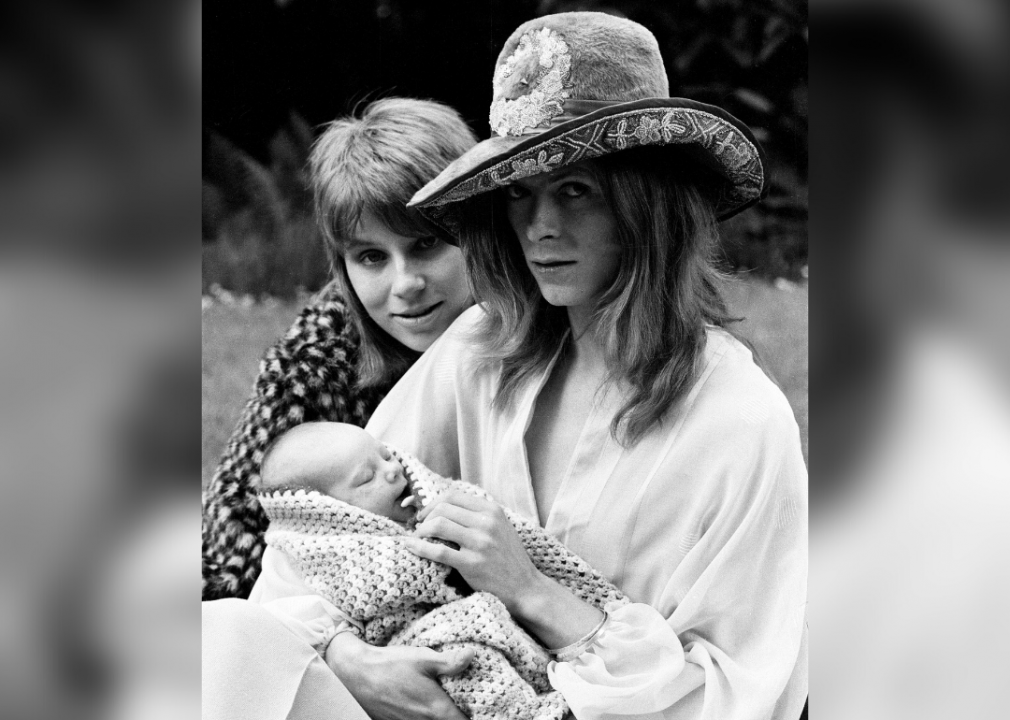
Daily Mirror/Mirrorpix via Getty Images
1971: A son is born
Duncan Zowie Haywood Jones was born to David Bowie and Angela Barnett on May 9, 1971. First called Zowie, Bowie’s son later went by Joe and then by Duncan Jones. He became a writer and director.
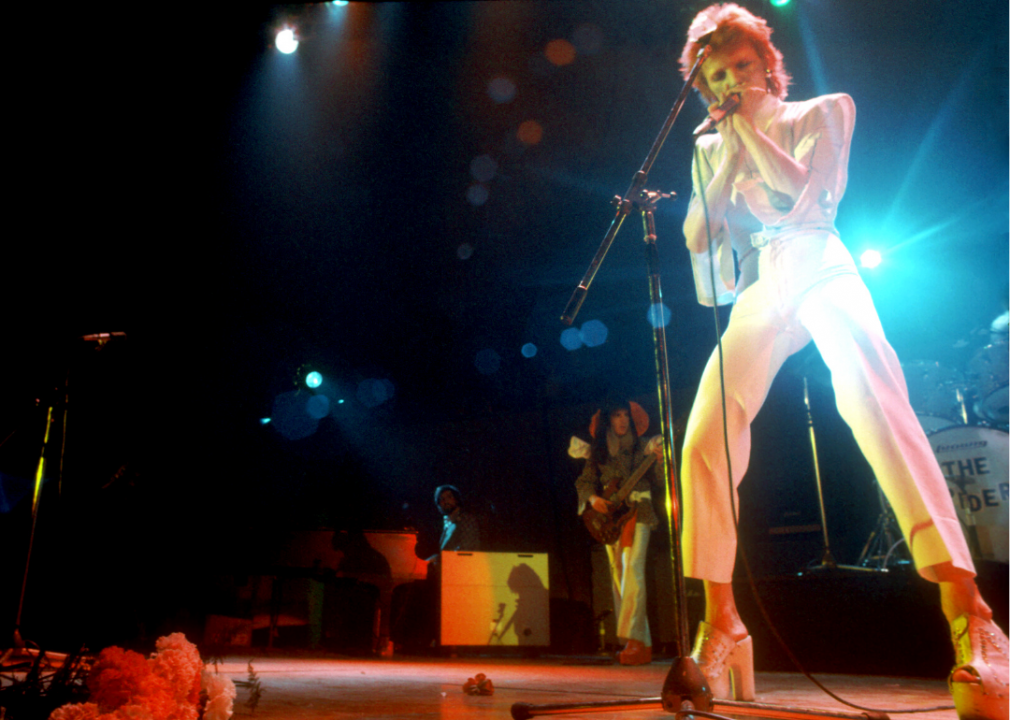
Michael Ochs Archives/Getty Images
1972: The Rise of Ziggy Stardust
Bowie released the iconic album “The Rise and Fall of Ziggy Stardust and the Spiders from Mars” in June 1972. Many music fans first met Bowie’s glam-rock Ziggy Stardust persona when he appeared live on the 1972 “Top of The Pops” show. Bowie toured as Ziggy Stardust through mid-1973.
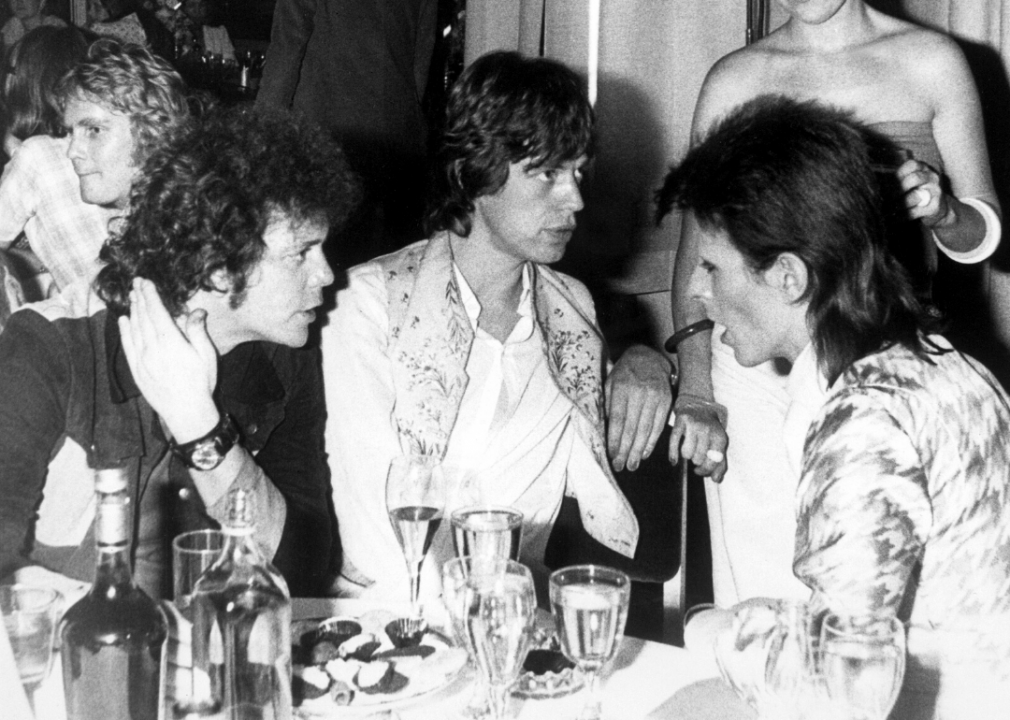
Bettmann // Getty Images
1972: Producing Lou Reed, Iggy, Mott the Hoople
In 1972, Bowie produced Lou Reed’s “Transformer” album (with the hit song “Walk on the Wild Side”) as well as “Raw Power” by Iggy & The Stooges and Mott the Hoople’s “All The Young Dudes.” He also wrote the title track on the Mott the Hoople album.
You may also like: 30 celebrities who have built massive businesses
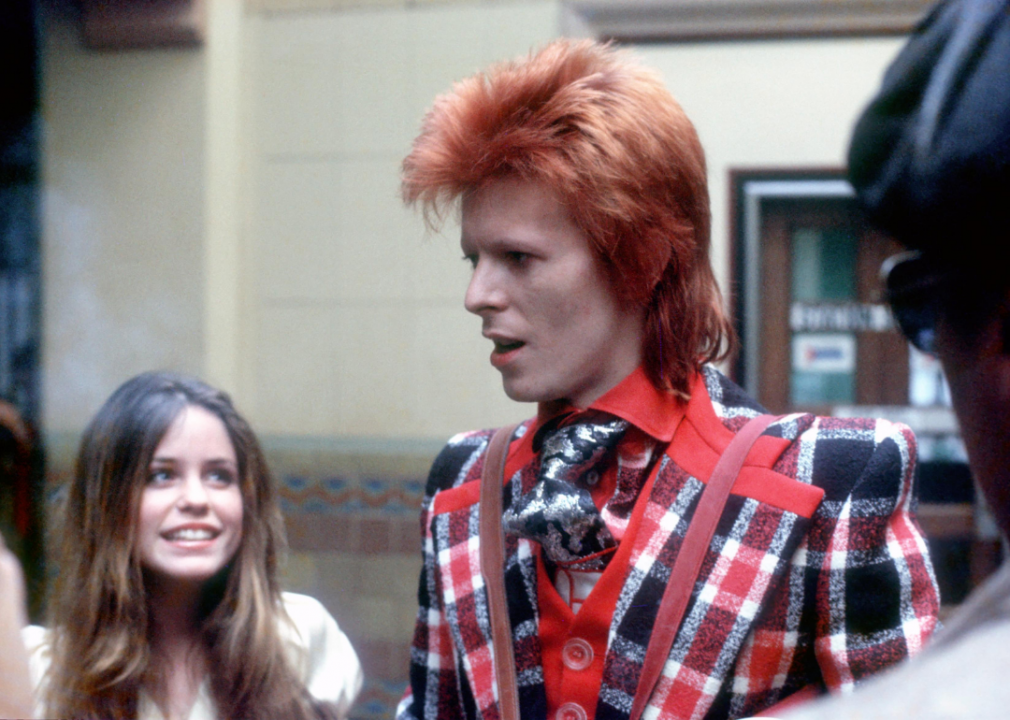
Richard Creamer/Michael Ochs Archives/Getty Images
1972: Coming out in an interview
In a magazine interview in 1972, Bowie said he was gay. But in a later interview in 1983 with Rolling Stone, he said he made that up, calling himself a “closet heterosexual.” At other times he referred to himself as bisexual.
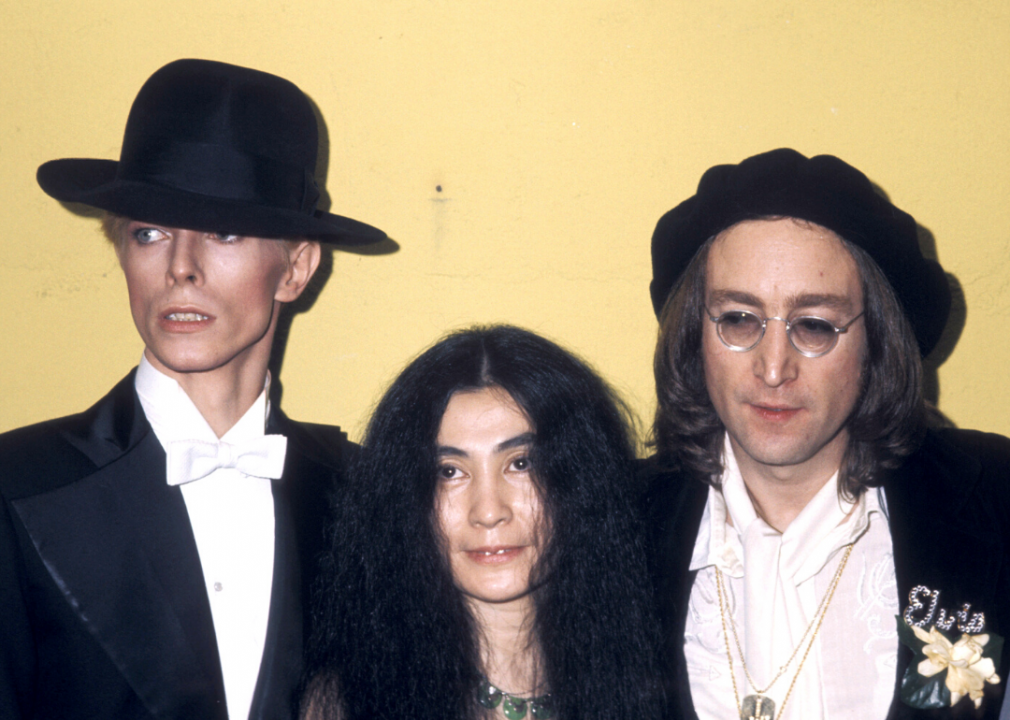
Ron Galella/Ron Galella Collection via Getty Images
1975: ‘Young Americans’ collaboration with John Lennon
The album “Young Americans” was released in March 1975. It featured a collaboration with John Lennon on the song “Fame,” which became Bowie’s first U.S. #1 single. R&B singer Luther Vandross performed backup vocals on the album.
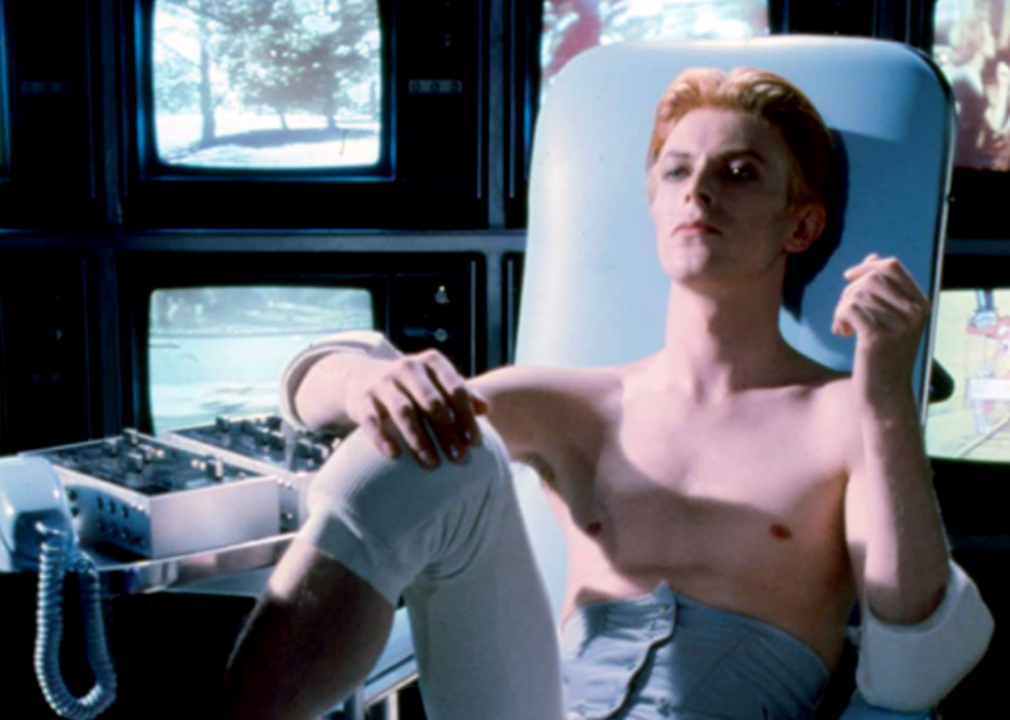
British Lion Film Corporation
1976: ‘The Man Who Fell to Earth’
The musician starred in the 1976 science fiction film “The Man Who Fell to Earth.” He played an alien who travels to Earth seeking help in saving his home planet.
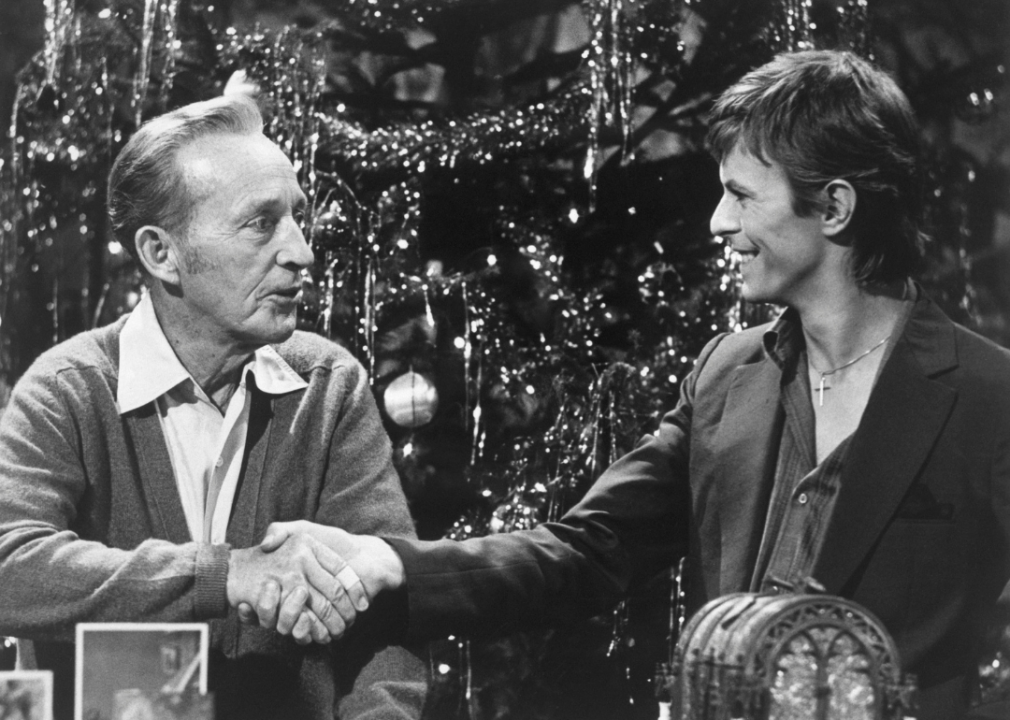
Bettmann // Getty Images
1977: Christmas with Bing Crosby
Bowie appeared in Bing Crosby’s Christmas television special that was taped in London and aired after Crosby had died. The pair sang a duet version of “The Little Drummer Boy.”
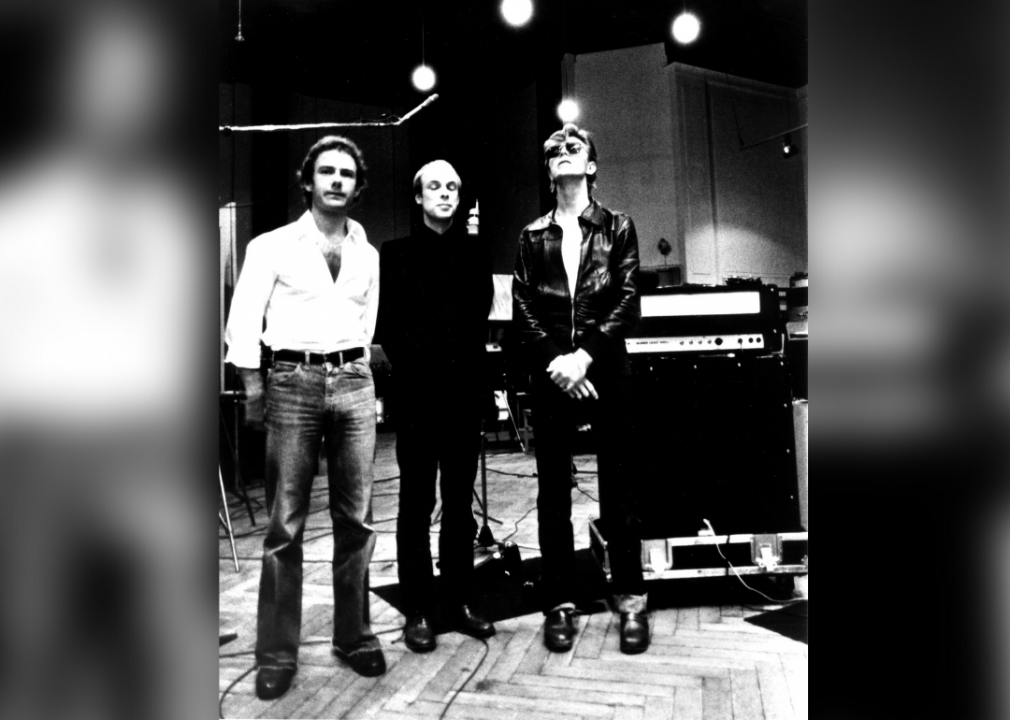
Michael Ochs Archives/Getty Images
1977-1979: Living, working in Berlin
From 1977 to 1979, Bowie lived in the German capital and released what became known as his “Berlin trilogy” of albums: “Low,” “Heroes,” and “Lodger.” After Bowie died, fans tried to have the street where he lived renamed “David-Bowie-Straße” or David Bowie Street.
You may also like: 30 secret celebrity weddings
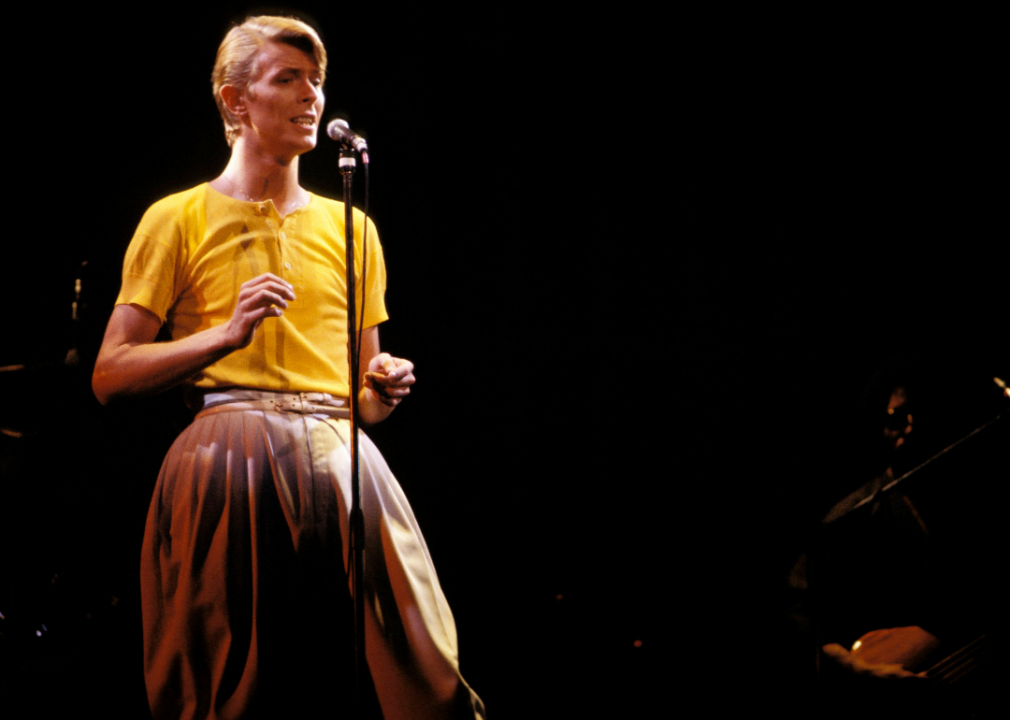
Richard E. Aaron/Redferns // Getty Images
1978: Narrating ‘Peter and the Wolf’
While touring in 1978, Bowie narrated “Peter and the Wolf” with the Philadelphia Orchestra. Now out of print, the album has become a collector’s item.
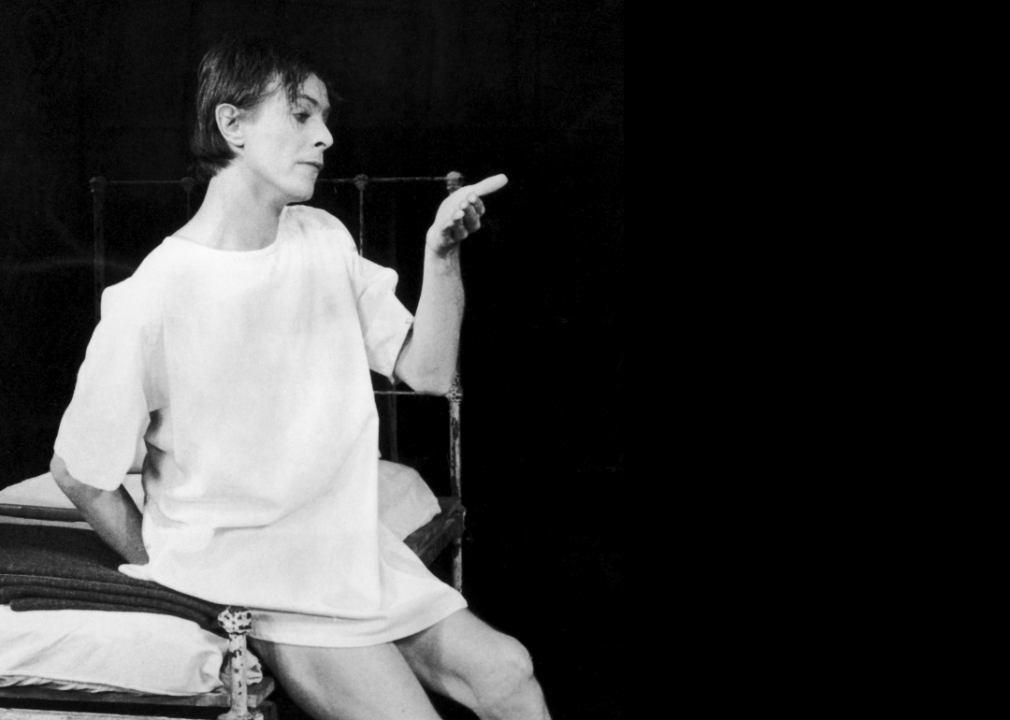
Albert Foster/Mirrorpix/Getty Images
1980: A divorce and a Broadway show
Bowie, who had moved to Switzerland, and Angela Barnett filed for divorce in early 1980. Later that year, Bowie starred in “The Elephant Man” on Broadway.
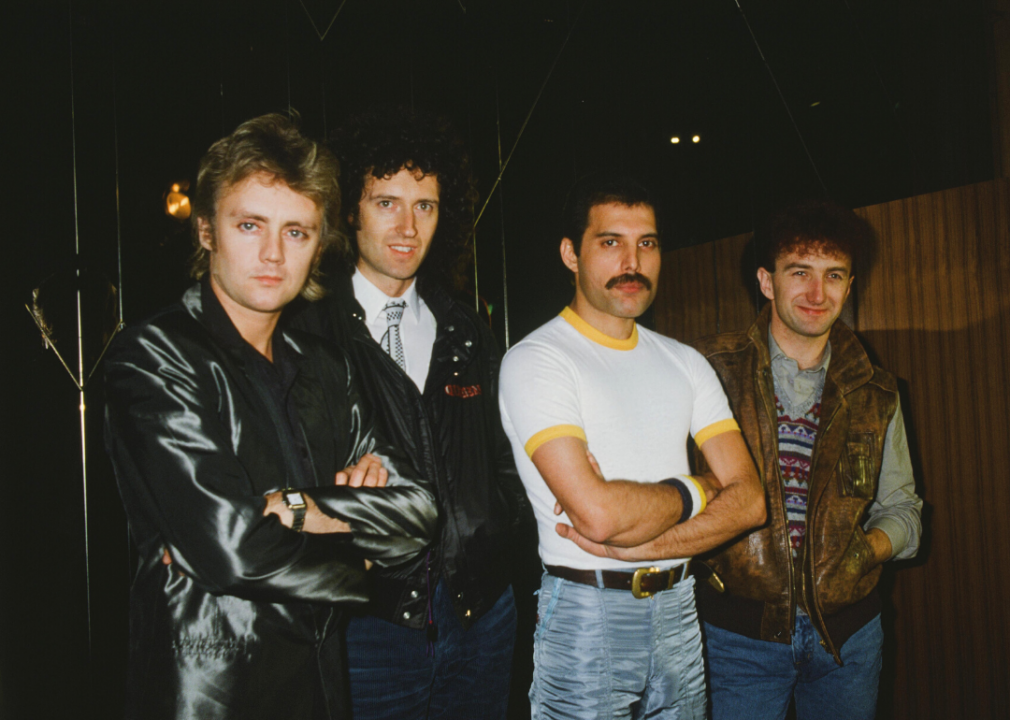
Koh Hasebe/Shinko Music // Getty Images
1981: Collaborating with Queen
Bowie collaborated with Freddie Mercury and Queen to make the single “Under Pressure” in 1981. It became his third song to hit #1 on the U.K. charts. Bowie originally wanted it to be titled “People on the Streets.”
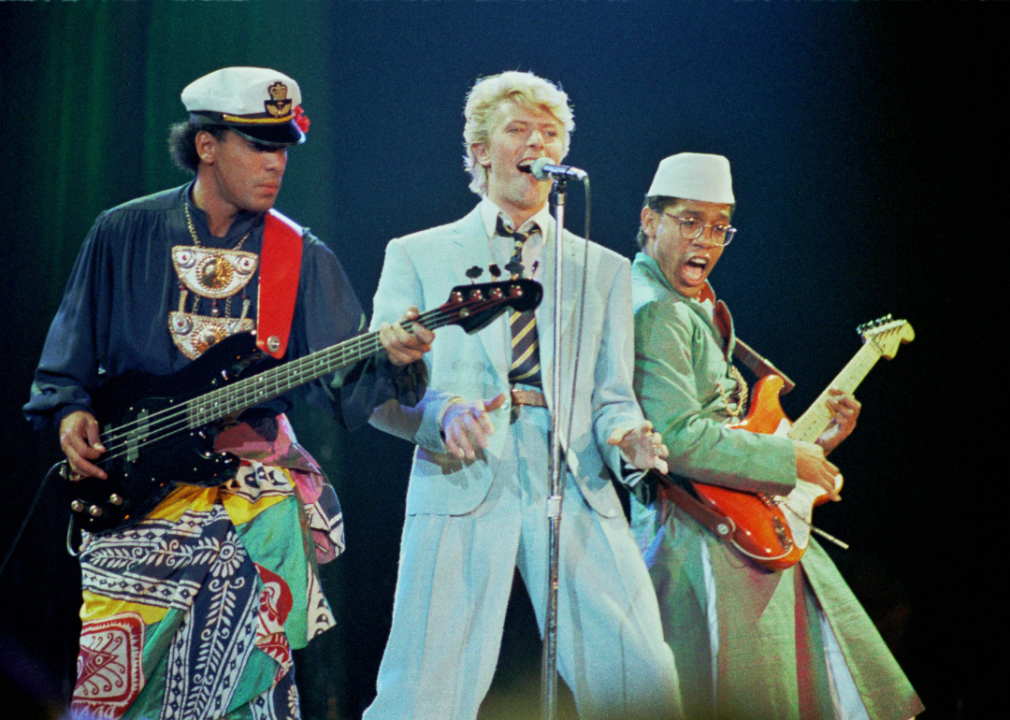
Phil Dent/Redferns // Getty Images
1983: ‘Let’s Dance’ sells millions
Released in April 1983, “Let’s Dance” quickly became Bowie’s most commercially successful album, selling some 7 million copies worldwide. The album’s producer said it was made in just 17 days.
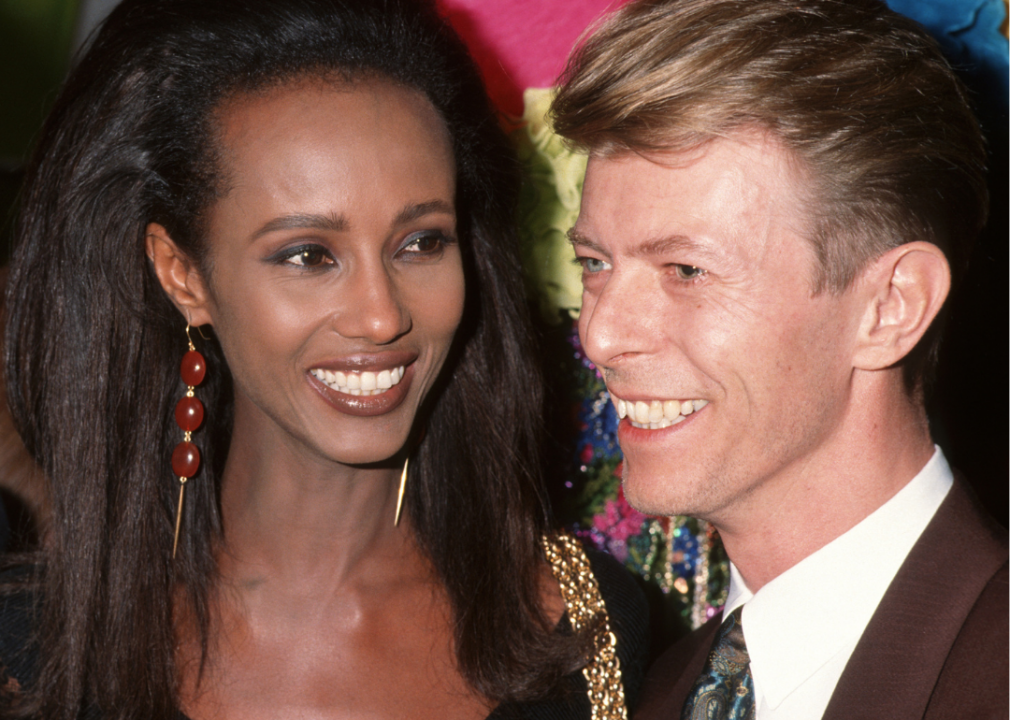
Ron Galella/Ron Galella Collection via Getty Images
1992: Marrying model Iman
Bowie and supermodel Iman were married in 1992. Bowie’s son Duncan Jones acted as best man. Bowie had proposed to Iman under the Pont Neuf in Paris.
You may also like: The world’s richest celebrities
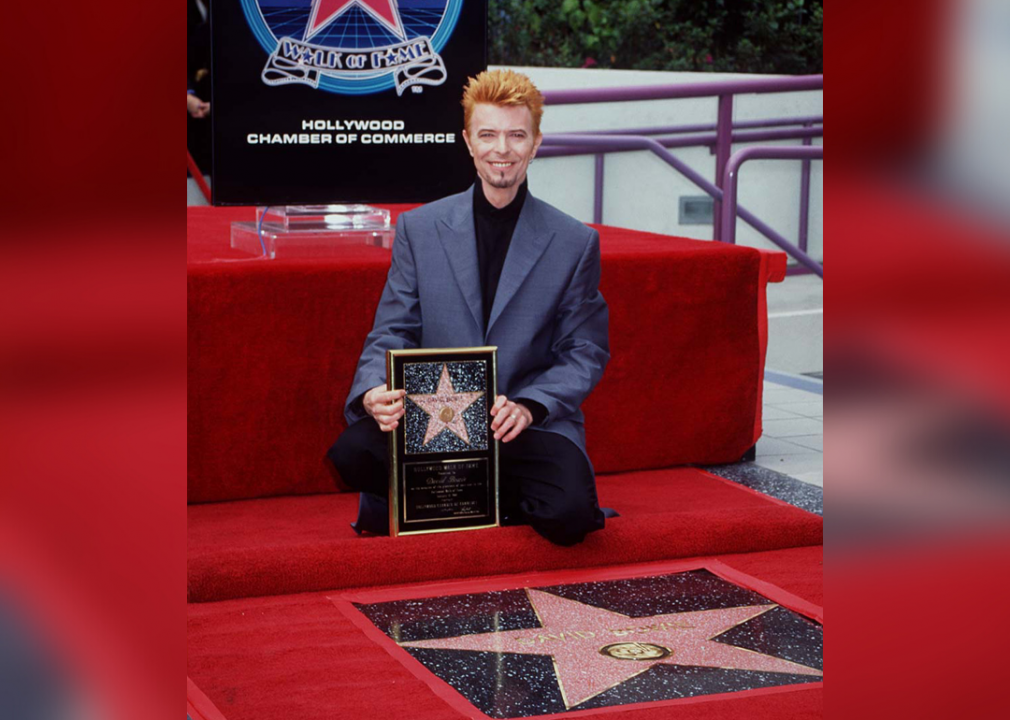
Magma Agency/WireImage // Getty Images
1996: Hall of Fame induction
In 1996, the musician was inducted into the Rock and Roll Hall of Fame by Madonna. The following year, he was given a star on the Hollywood Walk of Fame. In 2000, he turned down the royal honor of Commander of the Order of the British Empire, and three years later he also turned down a knighthood.
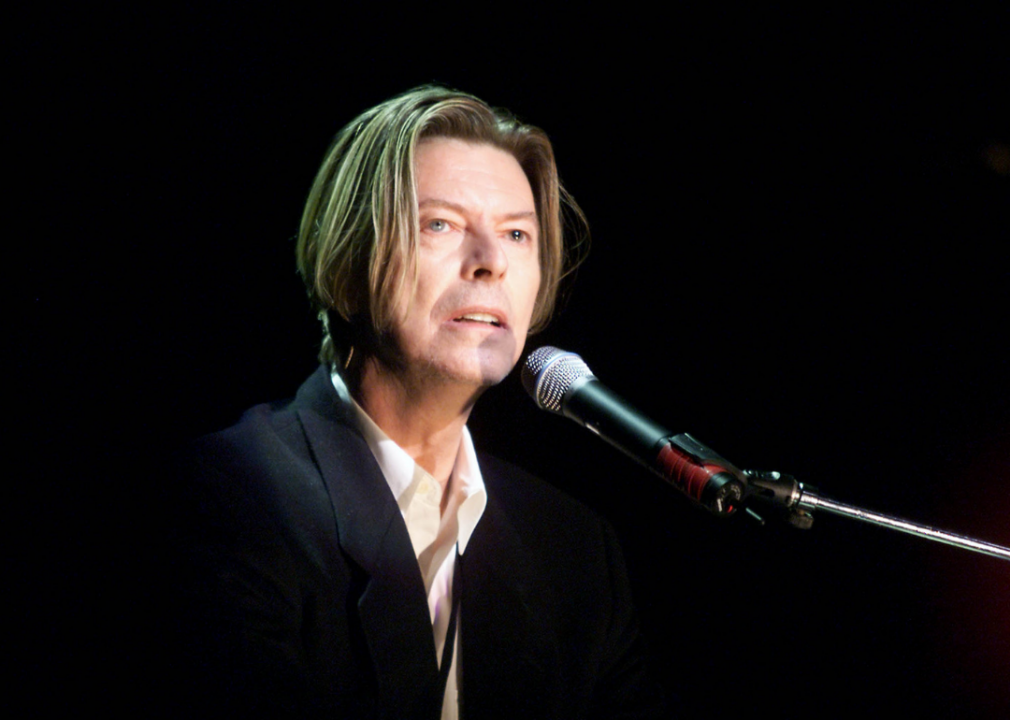
Frank Micelotta/ImageDirect // Getty Images
2001: A tribute to New York
Bowie and Iman had a daughter, Alexandria Zahra Jones, in 2001. Later that year, he gave a moving performance at The Concert for New York City at Madison Square Garden after the attacks of Sept. 11. He played Simon and Garfunkel’s song “America” and his own piece, “Heroes.”
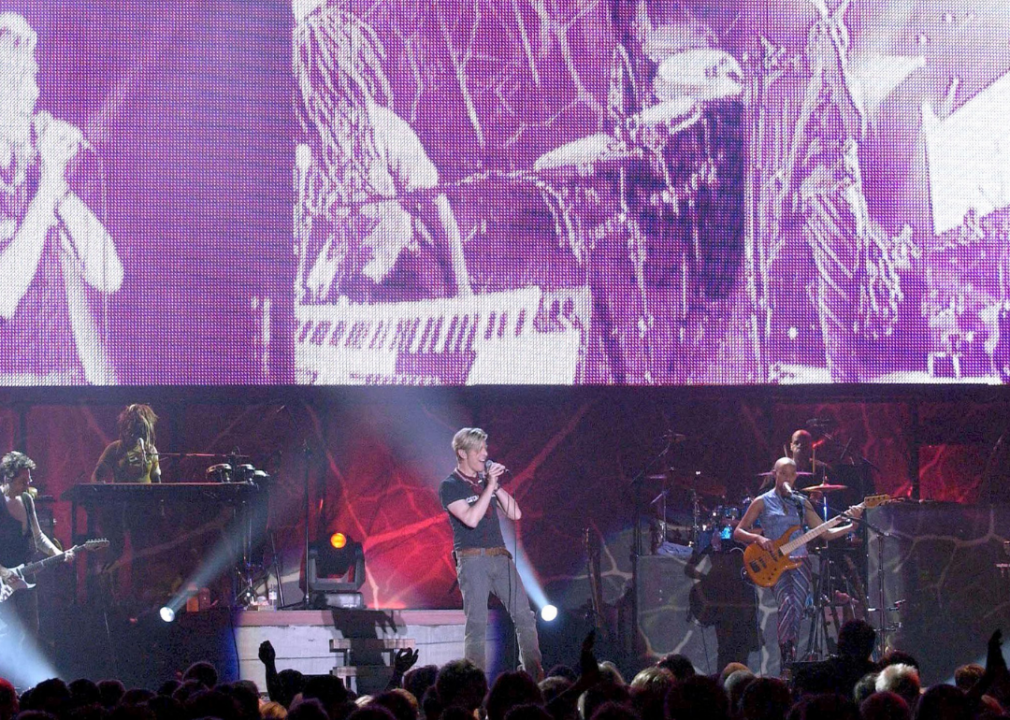
Brian Rasic // Getty Images
2004: A heart attack onstage
While touring to promote his album “Reality,” Bowie had a heart attack during a performance in Germany. He immediately underwent an emergency angioplasty.
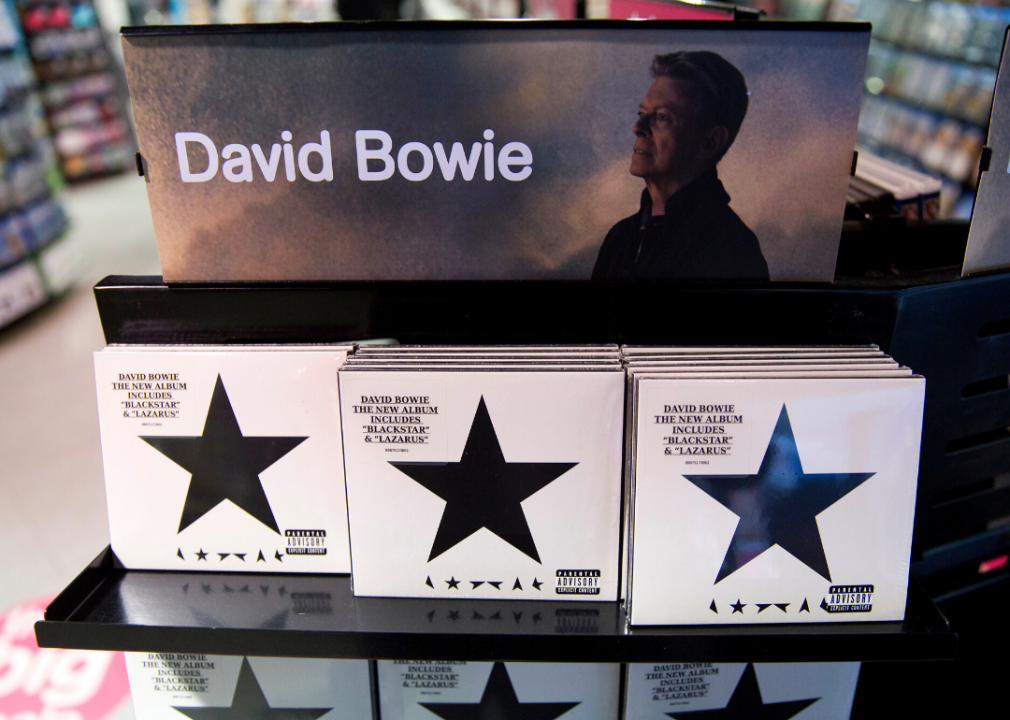
JUSTIN TALLIS/AFP via Getty Images
2016: Death from cancer
On his 69th birthday, Bowie released his album “Blackstar.” Two days later, on Jan. 10, he died of cancer. “David Bowie died peacefully today surrounded by his family after a courageous 18-month battle with cancer,” a statement on his website read.

Canva
2016: Ashes spread in Bali
At the time of his death, Bowie’s estate was estimated to be worth $100 million. His body was cremated, and his ashes were spread on the Pacific island of Bali.
You may also like: Celebrity stage names vs. their real names


